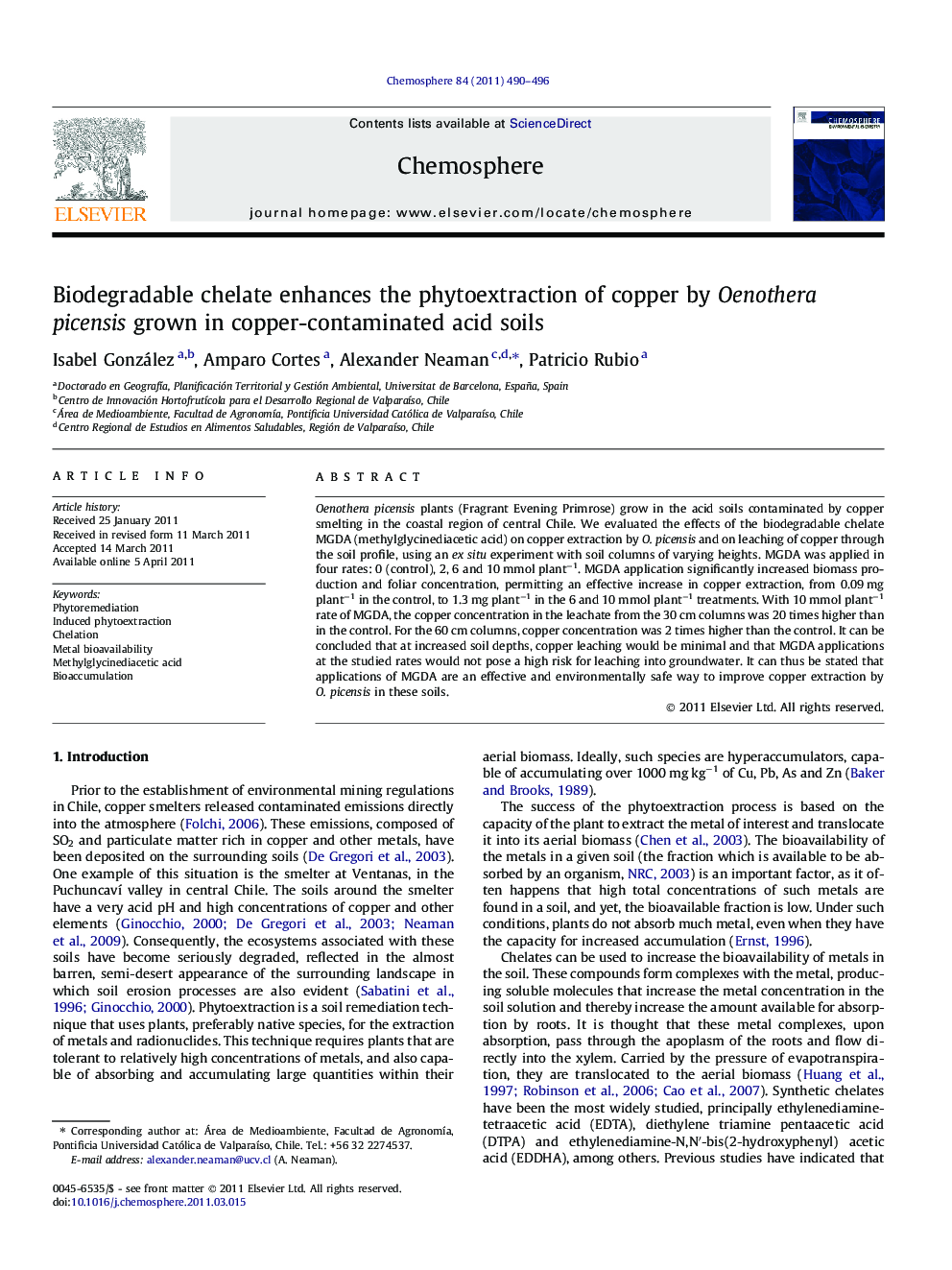| Article ID | Journal | Published Year | Pages | File Type |
|---|---|---|---|---|
| 4410901 | Chemosphere | 2011 | 7 Pages |
Oenothera picensis plants (Fragrant Evening Primrose) grow in the acid soils contaminated by copper smelting in the coastal region of central Chile. We evaluated the effects of the biodegradable chelate MGDA (methylglycinediacetic acid) on copper extraction by O. picensis and on leaching of copper through the soil profile, using an ex situ experiment with soil columns of varying heights. MGDA was applied in four rates: 0 (control), 2, 6 and 10 mmol plant−1. MGDA application significantly increased biomass production and foliar concentration, permitting an effective increase in copper extraction, from 0.09 mg plant−1 in the control, to 1.3 mg plant−1 in the 6 and 10 mmol plant−1 treatments. With 10 mmol plant−1 rate of MGDA, the copper concentration in the leachate from the 30 cm columns was 20 times higher than in the control. For the 60 cm columns, copper concentration was 2 times higher than the control. It can be concluded that at increased soil depths, copper leaching would be minimal and that MGDA applications at the studied rates would not pose a high risk for leaching into groundwater. It can thus be stated that applications of MGDA are an effective and environmentally safe way to improve copper extraction by O. picensis in these soils.
► Methylglycinediacetic acid (MGDA) increased Cu extraction by Oenothera picensis. ► Although Cu leaching occurred, it was drastically diminished with depth. ► Application of MGDA will greatly reduce the time necessary for Cu phytoextraction.
